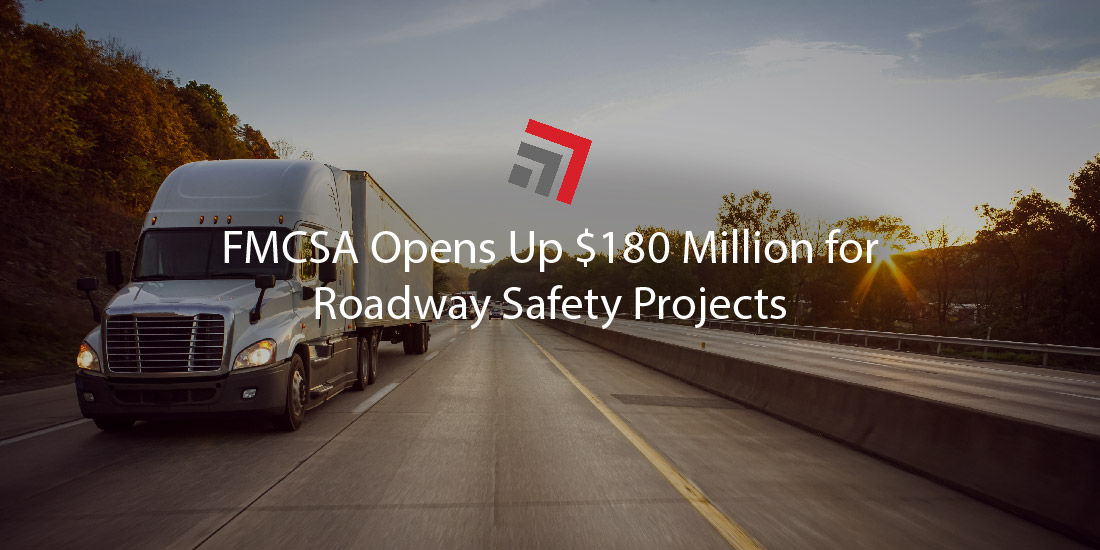The Federal Motor Carrier Safety Administration (FMCSA) has unlocked more than $180 million in funding set to be awarded across a smorgasbord of safety-related grant programs. Public and private interests alike now have the opportunity to secure government support on their agendas and projects towards promoting commercial vehicle safety.
The $180 million sum partially includes funding allocated from the 2021 Bipartisan Infrastructure Law.
“When we improve technology, training, and tools to make our roadways safer for truck and bus drivers, everyone benefits,” said U.S. Secretary of Transportation Pete Buttigieg. “The Biden-Harris Administration is proud to announce more than $180 million to make commercial vehicle driving safer and more efficient, while creating onramps for veterans and military families entering these great careers.”
These grants are open to state, territorial, and tribal organizations, local jurisdictions, academic institutions, and other training programs and entities.
Applications for these grants are due on Apr. 19. More details regarding requirements and project eligibility can be found on the FMCSA’s website.
Funding available through five grant programs
The funding opportunities are dispersed across five discretionary grant programs, each with distinct missions. All programs below support the U.S. DOT’s National Roadway Safety Strategy and the Safe System Approach. The latter is the department’s guiding model towards addressing concerns over roadway safety.
The High Priority Innovative Technology Deployment Grant Program
This program narrows support on transportation projects which focus on advancing technological innovations. This particularly relates to improving truck parking management systems and maintaining online databases which link FMCSA safety information with state commercial motor vehicle (CMV) systems.
The program also takes an interest in projects that improve the safety of vehicles and professional truck drivers, as well as ones that aim to reduce costs associated with operations and regulations.
The High Priority Commercial Motor Vehicle Safety Grant Program
This program funds safety-related projects that increase public awareness and education on CMV safety. For instance, this includes initiatives that target unsafe driving on high-risk accident roadways or demonstrate innovative technologies to improve road safety and data collection.
The Commercial Motor Vehicle Operator Safety Training Grant Program
This program focuses on awarding funding towards organizations enhancing CMV training access of underserved demographics, including active members and veterans of the U.S. military.
Veterans often face barriers when reentering civilian life and searching for a post-military career. In addition to this program, there exists several other resources provided by the FMCSA to assist them with easier access to obtaining a commercial driver’s license.
The Commercial Driver’s License Program Implementation Grant Program
This program aims to improve the U.S. commercial driver’s license (CDL) program, focused on ensuring each CDL driver has only one driving record and license, often referred to as “one driver—one license—one record”.
The High Priority Enforcement Training and Support Grant Program
This program funds the development and delivery of CMV safety training to non-federal law enforcement personnel. This includes educating them about FMCSA regulations, as well as Hazardous Materials Regulations and the CVSA’s out-of-service criteria.
Final Thoughts
While grant applications are due in April, the FMCSA did not include a date in its press release on when the federal agency will announce its chosen recipients.
The FMCSA is a federal agency under the umbrella of the U.S. DOT. The agency is tasked with preventing vehicle accidents and motorist injuries involving commercial vehicles, including heavy-duty trucks. The FMCSA commonly partners with local and state governments as well as private interests, like motor carriers, to support CDL training, CMV safety inspections, and law enforcement initiatives.
Contact one of our team members if you have any questions regarding this topic or any others in domestic logistics.
More blogs similar to this:



Recent Comments